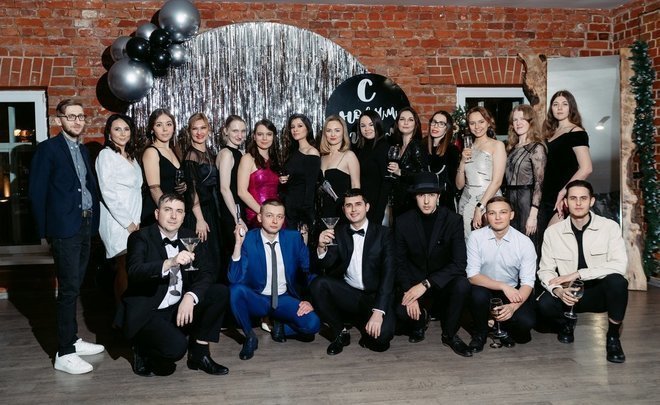Galina Akhmerova: ‘I love to say they aren’t your employees but your team!’
A labour market expert about the main HR strategy of employers

Russian employers changed the course of the HR strategy after all the turbulence in the labour market. Not start recruitment but retaining the personnel is now key for them. Businesses have focused on enhancing the efficacy of existing teams. Strategic teamwork is the foundation for business stability, founder of Darwin Modern Education Accessibility Development Fund and creator of Round platform Galina Akhmerova is convinced. In another op-ed column for Realnoe Vremya, the expert reflects on why teams, not products, will win.
“Few understand the real role and function of the HR director now”
The issue of staff attraction and retention is now on the agenda of every organisation from a small start-up to a big corporation, both in the commercial sector and public and municipal agencies.
HR managers find it tough. On the one hand, they are demanded to fill vacancies and candidates must correspond to them as much as possible, on the other hand, they are expected to grow and retain existing employees.
Moreover, not every manager of an organisation gives real instruments to achieve the demanded goals. Few understand the real role and function of the HR director now. It is good if such a function in general exists and it isn’t just an HR department’s obligation. In most companies this department remains auxiliary, not leading and involved in the company’s strategy. The slogan “The company’s success depends on the team” remains just a slogan.
Talking with companies of different sizes, different segments of the economy, I often hear: “Why beating around the bush? Some will go, others will come. We have almost zero unemployment rate in the country.” And they give HR departments unreal tasks resting on this.
Managers often reflect this way: “Nobody motivates me and I work excellently.” But training for managers is, first of all a necessity to correspond to the tasks. Employees might have different motivation.
“Bring a calculated business effect of all your team building stuff. We pay salaries on time, and this is our main task. How will all your fun and jokes help productivity? They just distract from work.” All this happens amid a very active debate in dedicated HR community chats where specialists of the sector get fancy and turn to the craftiest ideas to somehow do the management’s tasks.
Why family businesses survive external crises better
Working with staff today is a complex science and a complex of events. I love to say: they aren’t your employees but your team!
While a team is a group of individuals united by common motives, interests, ideals working in cooperation. Team mates are united by each other’s support and are all responsible for the result of the whole team’s activity.
In my 20-year work experience both in small teams and in a big company, I understood that there is nothing more complicated than creating chemistry between people. It cannot be digitalised in direct formulas, one has to turn to experience and statistics of those who have already covered this path. In companies with a great involvement level, client loyalty is 10% higher and product quality is 41% up. Involved employees achieve the best results in a business regardless of the sector, company size and the economic situation. A conflict between the management’s requests and employees’ capabilities is now especially plain to see: a staff shortage caused by the demographic pit as well as accelerated turbulent processes in the economy and in the world.
And when there is a storm, stability can be looked for only inside, there is none outside and there is going to be none for a long time. Inside is about the team.
There is confirmed data that family businesses survive external crises much better and in a more stable way. But why?
They are initially based on solid connections and common values.
Team work as foundation for business stability
According to PwC’s Global Family Business Survey 2018, family companies should stick to their competitive advantage that’s based on stable culture oriented to values as much as possible.
It is noteworthy that the research for 2018 demonstrates the connection between the values that are the foundation for strategic planning and obvious growth prospects. 75% of family companies think that firmer culture and value transmission give them an advantage compared to other companies. This is why now a strategic team work is the basis of business stability. Not products but teams will win. The creation of an HR brand, corporate culture will soon become a vital necessity, not just trends. And this is a hard scrupulous job, not just a trendy video ordered from several bloggers or the participation in awards and ratings.
If a manager doesn’t realise why it is necessary to care about employees and love them, no beautiful banners on the walls and tea with biscuits will help.